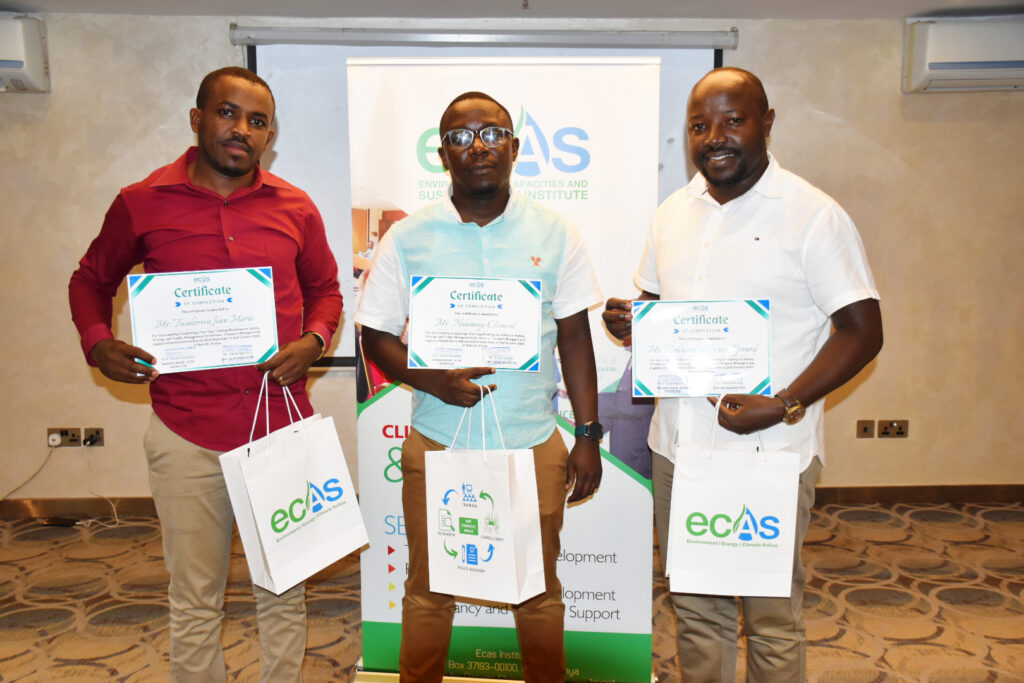
INTERNATIONAL TRAINING ON GREEN ECONOMY AND TRADE
COURSE BACKGROUND
World trade patterns have evolved considerably, with many developing countries becoming increasingly active players in global markets. However, a significant number—especially least developed countries (LDCs)—remain marginalized, contributing less than 1% of global trade. These nations typically rely on the export of raw materials and natural resource-based products, making them especially vulnerable to economic volatility and environmental shocks.
The global shift towards an inclusive green economy offers a transformative pathway for such countries. By capitalizing on growing demand for environmental goods and services and consumers’ preference for sustainable products, countries can diversify their economies, reduce their dependence on primary commodities, and enhance international competitiveness. This transition not only promotes long-term sustainable development, but also strengthens resilience against environmental challenges.
In the context of a post-COVID-19 economic recovery, green trade is poised to play a pivotal role. Stimulus measures adopted worldwide increasingly support climate-friendly solutions, signaling a rise in demand for green products. Though the course was developed prior to the pandemic, its content is especially relevant today as policymakers explore pathways to a resilient, climate-aware recovery. This course aims to equip government officials, private sector actors, and civil society with the knowledge and tools necessary to identify and act on emerging green trade opportunities.
COURSE OBJECTIVES OF THE TRAINING
By the end of this course, participants will be able to:
- Explain the evolution of international legal and governance frameworks related to trade and the green economy.
- Identify key challenges and emerging opportunities at the interface of trade and green economy.
- Analyze enabling policy conditions necessary to support green trade initiatives.
- Illustrate real-world examples and sectoral case studies where green trade has contributed to economic and environmental benefits.
WHAT YOU WILL LEARN
Participants will gain foundational knowledge and practical insights on:
- The intersection between trade and environmental sustainability.
- How trade liberalization can support—or challenge—green economy objectives.
- Policy tools and enabling conditions needed to support green trade.
- Sector-specific opportunities where green trade is already delivering results.
DURATION AND PROGRAM
(TBC)
TARGET PARTICIPANTS
This course is designed for a wide range of stakeholders involved in trade, environmental policy, or sustainable development. It is particularly relevant to:
- Government officials from ministries of trade, environment, planning, and finance.
- Private sector representatives, including sustainability managers, exporters of green goods, and business leaders interested in sustainable trade.
- Civil society organizations and academics working on trade and environmental issues.
- Development practitioners and policy advisors engaged in green growth strategies and post-COVID-19 recovery planning.
TRAINING MODULES
| No | Module | Details | |
| 1. | The Trade and Environment Interface |
This module provides an overview of how international trade and environmental sustainability intersect. It sets the stage for understanding how legal and institutional frameworks have evolved to support the integration of environmental priorities into trade policy and governance.
Topics Covered:
|
|
| 2. | Perceived Tensions and Synergies between Trade Liberalisation and the Green Economy |
This module explores the common tensions and potential synergies between trade liberalization and environmental protection. It examines how policies can be designed to mitigate conflicts and enhance mutual benefits.
Topics Covered:
|
|
| 3. | Enabling Conditions and Policy Design for Green Trade |
This module identifies the policy instruments and enabling conditions necessary to support green trade. It offers insights into how national governments and international institutions can create an environment conducive to sustainable trade practices.
Topics Covered:
|
|
| 4. | Seizing Sectoral Opportunities |
This final module showcases real-world examples of green trade in action across different sectors. It highlights case studies where trade has been leveraged to support green economic transformation and environmental sustainability.
Topics Covered:
|
|
TRAINING STYLE
The modules will be taught through PowerPoint presentations, and lectures and will include a case study/field visit, breakout sessions, case studies and other interactive discussion components.
The course will also include a few guest speakers, both in person and via Zoom and other online learning platforms for overseas speakers. This provides useful real-world insights alongside the more theoretical aspects of the course.
The conference faculty shall consist of experienced decision makers, as well as practitioners and representatives from established educational and research institutions active around climate change, engineering and international development. Throughout the course, theoretical presentation of concepts will be moderated and more group discussions and plenary engagements will be optimized. PowerPoint presentations will be made by facilitators and resource persons, to highlight key concepts before embarking on group work.
GENERAL NOTES
- Training manuals and additional reference materials are provided to the participants.
- Upon successful completion of this course, participants will be issued with a certificate.
- We can also do this as a tailor-made course to meet organization-wide needs. Contact us to find out more: info@ecasiafrica.org.
- Payment should be sent to our bank account before the start of training and proof of payment sent to: info@ecasiafrica.org.
ABOUT ECAS INSTITUTE
The ECAS Institute designs and delivers independent and targeted training, research, and consulting services. Our work focusses on climate change and resilience building, carbon markets, renewable energy, nature-based solution, biodiversity conservation, agriculture and food systems, We are located in Nairobi Kenya and work across the African region. We have implemented training and research assignments in Kenya, Tanzania, Uganda, South Sudan, Somalia, Malawi, Rwanda, Congo, and South Africa. Globally, we have supported our partners from the UK, Denmark, Italy, Sweden, Germany, and USA.

